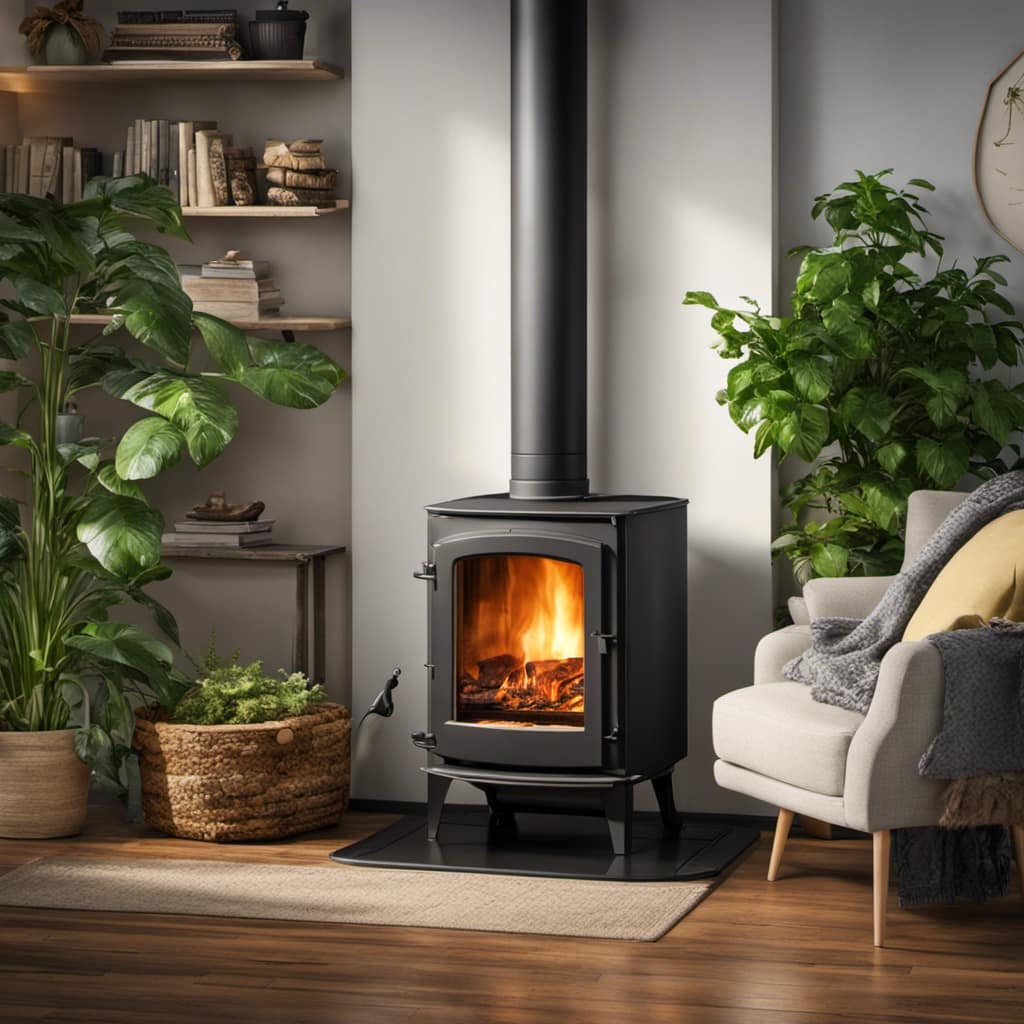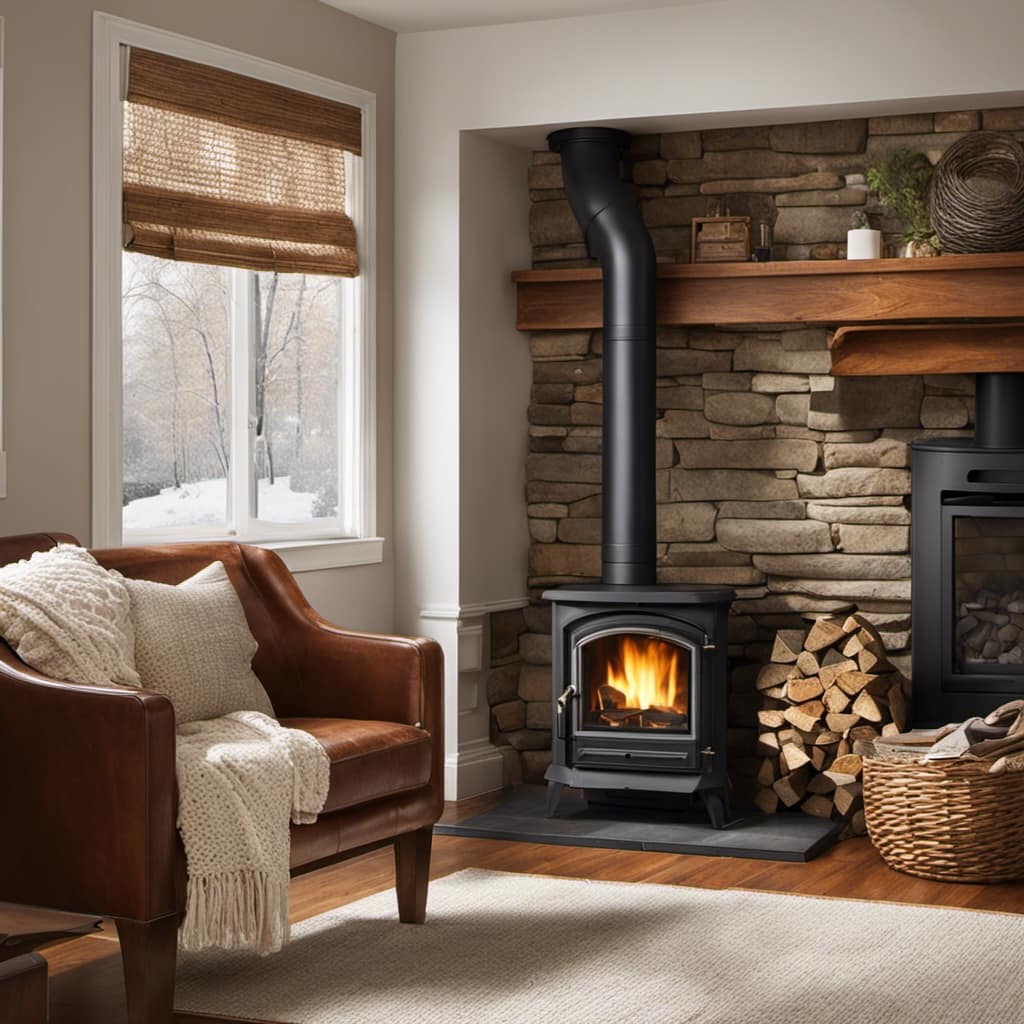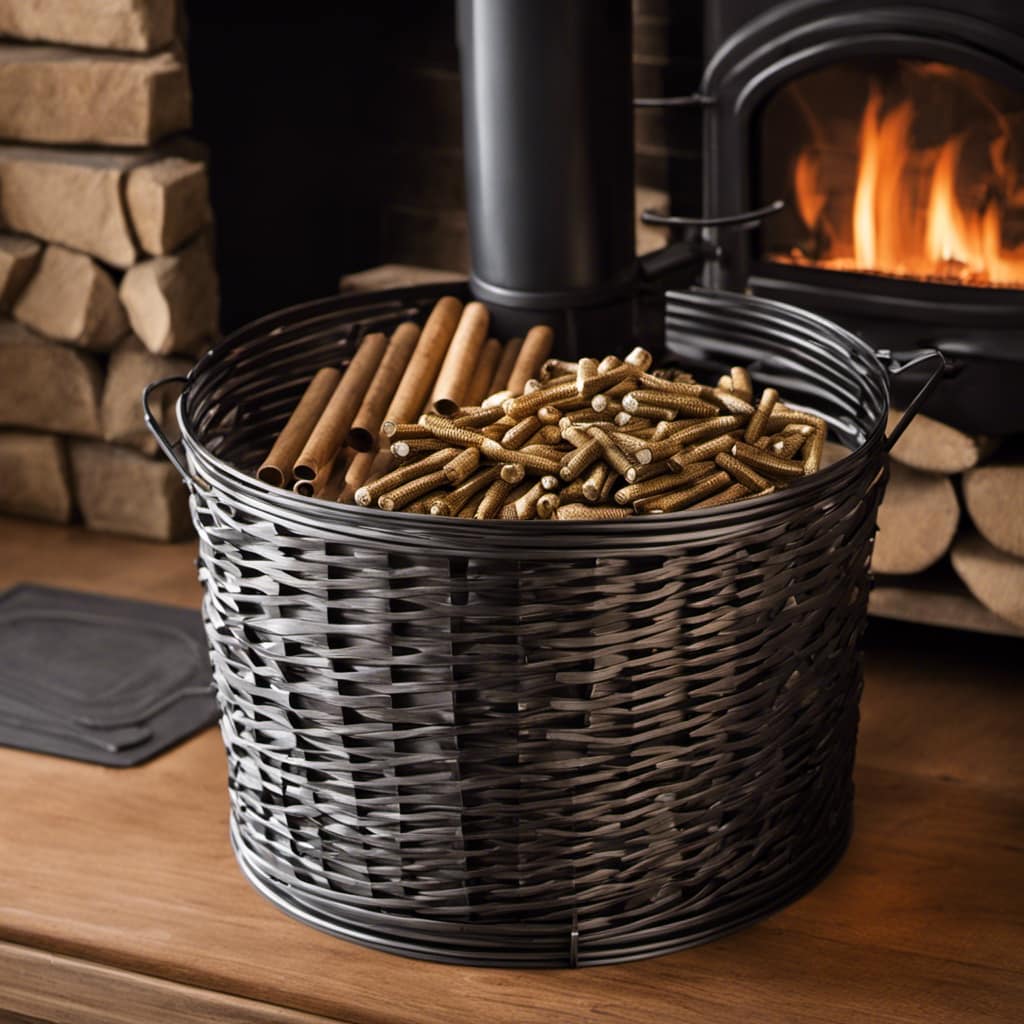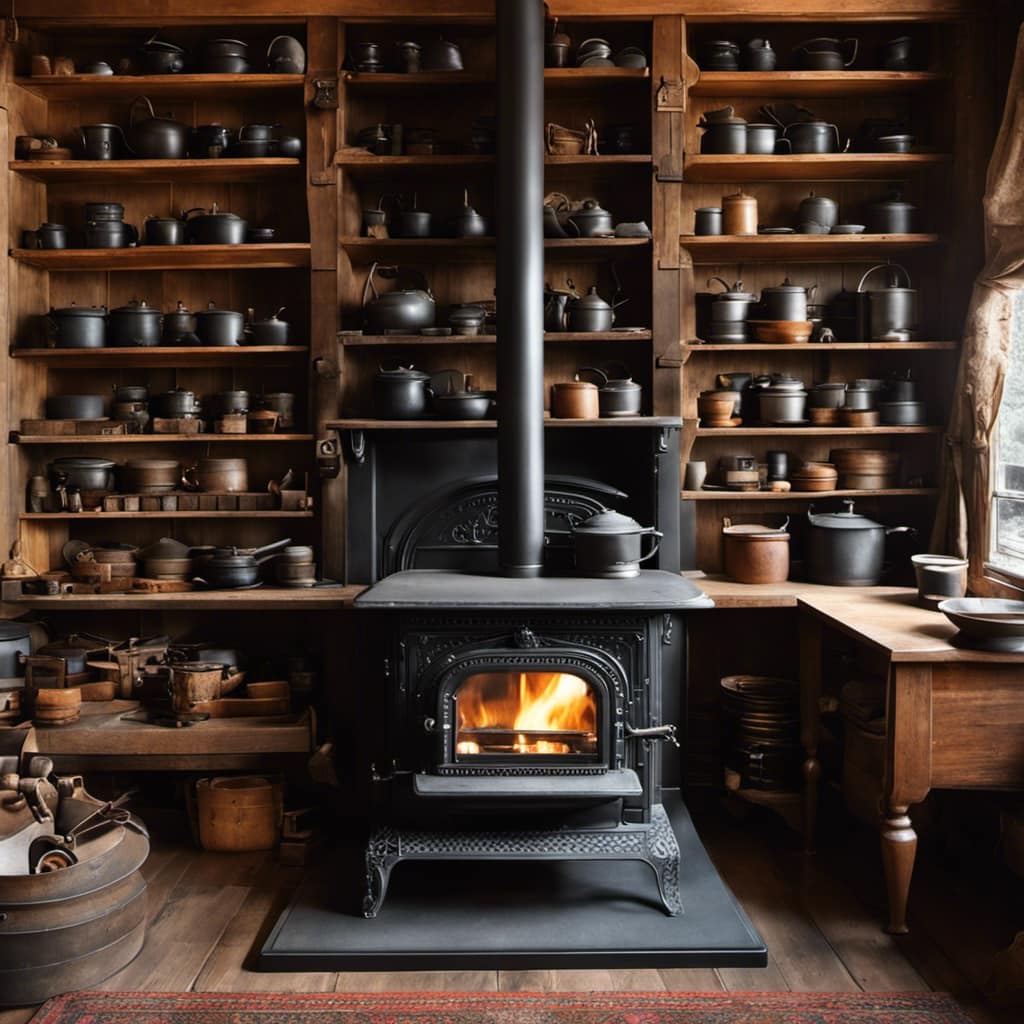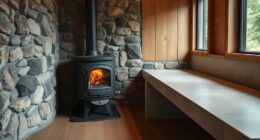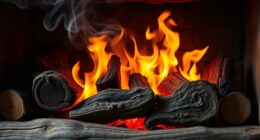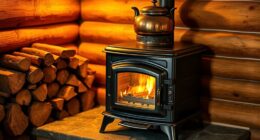
You might be wondering – what exactly does a baffle in a wood stove refer to?
Well, let me tell you, it’s a vital component that plays a crucial role in the efficiency of your wood stove.
This little device helps control the flow of air and heat, maximizing the heat output and reducing emissions.
In this article, I’ll dive into the nitty-gritty details of how baffles work, the different types available, and how to maintain and replace them when needed.

So, let’s get started!
Key Takeaways
- A baffle in a wood stove redirects the flow of hot gases, maximizes heat retention and distribution, creates a longer path for gases to travel, and increases heat absorption and radiation.
- There are different types of baffles used in wood stoves, including stainless steel baffles, cast iron baffles, and ceramic baffles, each with their own advantages and disadvantages.
- A baffle improves wood stove efficiency by regulating the combustion process, directing airflow towards the burning wood, increasing complete and efficient combustion, and retaining heat for longer periods, reducing the need for constant refueling.
- Common issues with wood stove baffles include poor combustion, excessive smoke production, and the build-up of creosote, which can be prevented through regular maintenance and inspection, and proper troubleshooting and repair should be done by a professional.
The Function of a Baffle in a Wood Stove
I find it fascinating to learn about the function of a baffle in a wood stove. The importance of proper baffle placement in wood stoves can’t be overstated.
The baffle is a crucial component that enhances the efficiency and performance of the stove. Its main function is to redirect the flow of hot gases, ensuring maximum heat retention and distribution. By strategically placing the baffle, it creates a longer path for the gases to travel, allowing for more heat to be absorbed by the stove and radiated into the room.
The design of the baffle also plays a significant role in the stove’s performance. A well-designed baffle can effectively trap and burn off gases, reducing emissions and improving combustion efficiency.

Overall, understanding the function and design of the baffle is essential for optimizing the performance of a wood stove.
Types of Baffles Used in Wood Stoves
One type of commonly used component in a wood stove is a metal plate that helps to control the flow of air and gases, improving the efficiency of the heating process. Baffles are essential for directing heat and smoke towards the flue, while also preventing them from escaping too quickly. Different baffle materials can be used, each with their own pros and cons.
Stainless steel baffles are durable and provide excellent heat transfer, but they can be expensive. Cast iron baffles are also durable, but they may crack under extreme heat. Ceramic baffles are lightweight and efficient, but they can be fragile. The design of the baffle also affects its performance. A flat baffle allows for easy cleaning, while a maze-like design increases the surface area for improved heat transfer.
Transitioning to the next section, it’s important to understand how a baffle improves wood stove efficiency.
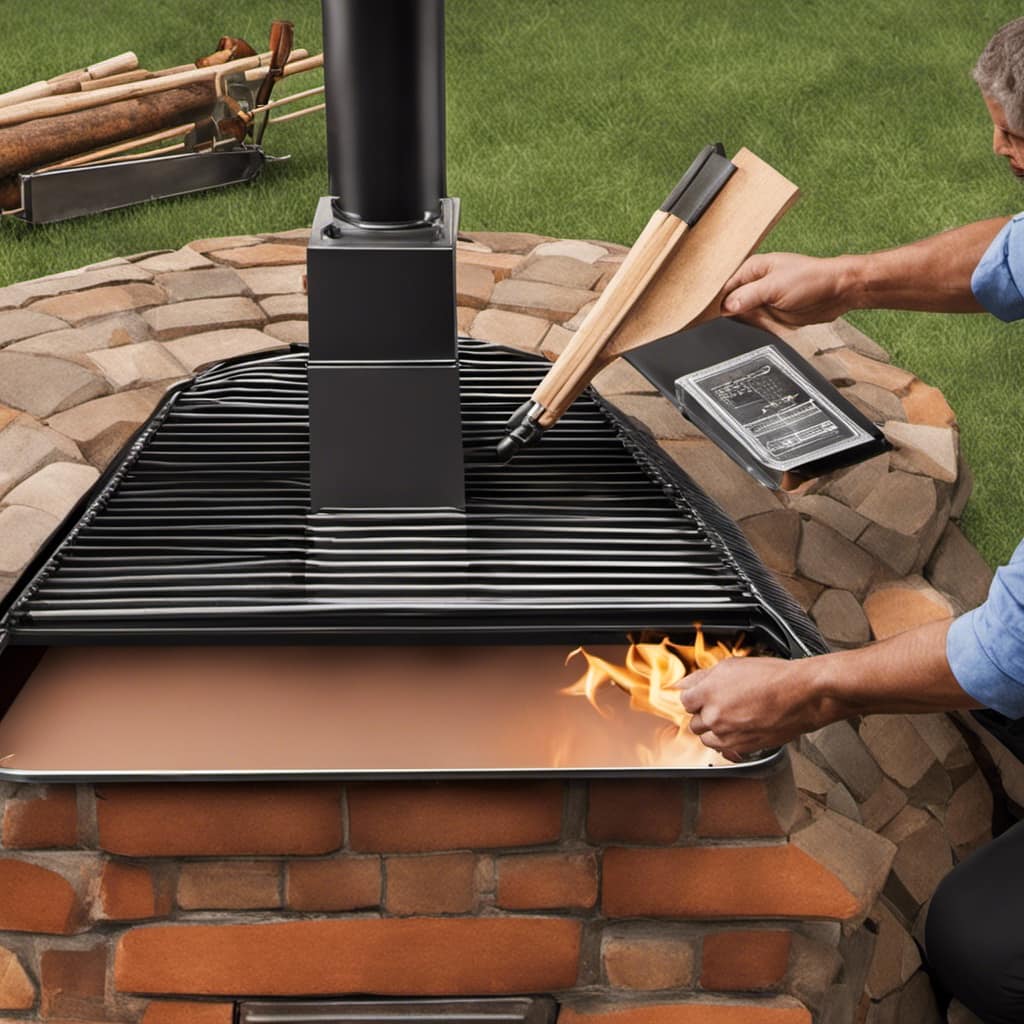
How a Baffle Improves Wood Stove Efficiency
Using a metal plate in the wood stove helps control the flow of air and gases, leading to improved efficiency.
The benefits of using a baffle in a wood stove are numerous. Firstly, a properly installed baffle helps regulate the combustion process by directing the flow of air towards the burning wood. This ensures more complete and efficient combustion, resulting in increased heat output and reduced emissions.
Secondly, the baffle acts as a barrier, preventing the heat from escaping through the chimney too quickly. This allows the stove to retain heat for longer periods, reducing the need for constant refueling.
Proper baffle installation is crucial for optimal performance. It should be positioned at the correct height and angle to create a controlled burn and maximize heat transfer. Additionally, regular maintenance and cleaning of the baffle is essential to ensure its effectiveness and prevent any blockages that may hinder its function.
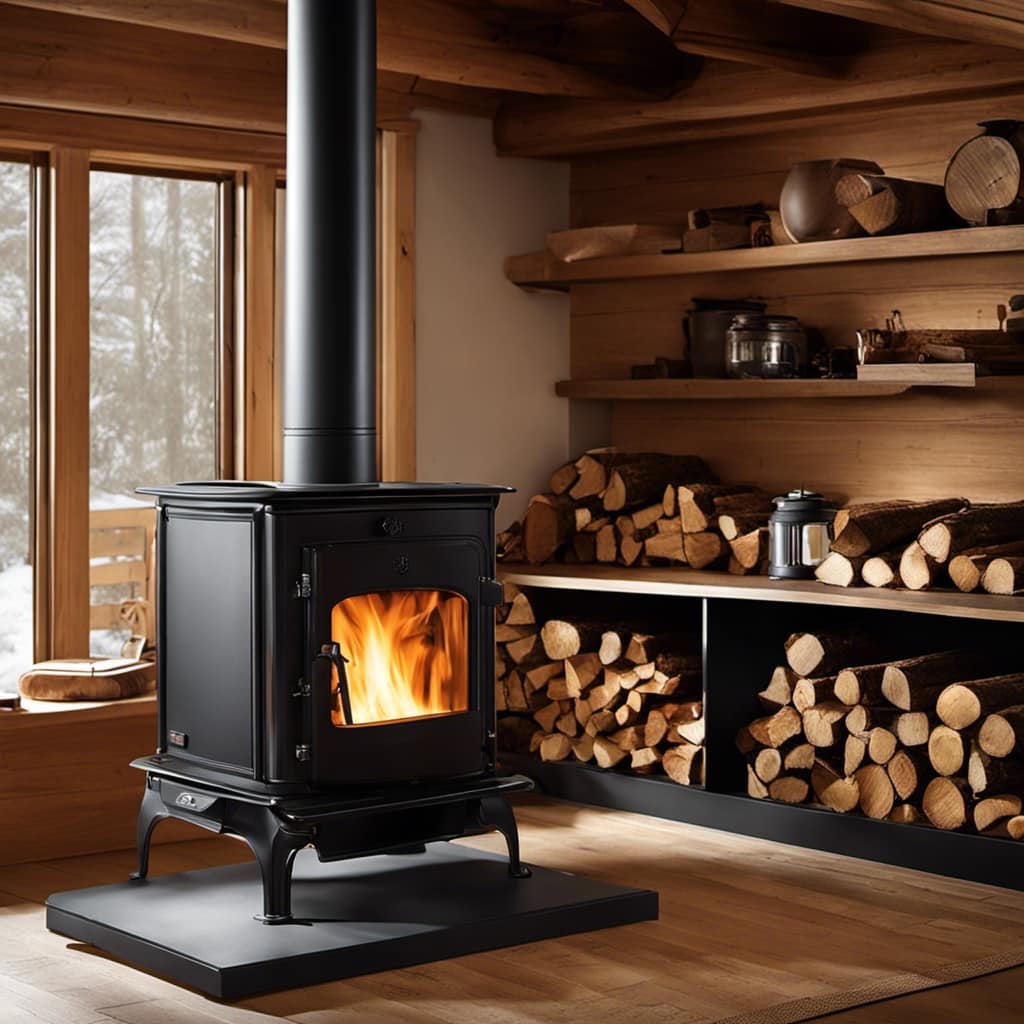
Overall, using a baffle in a wood stove is a simple yet effective way to improve efficiency and enhance the heating experience.
Common Issues With Wood Stove Baffles
Having a malfunctioning baffle can lead to decreased efficiency and reduced heat output in my stove. It’s important to troubleshoot any baffle issues to ensure optimal performance. Here are three signs of a damaged baffle to look out for:
-
Poor combustion: If you notice that your wood stove isn’t burning efficiently, it could be a sign of a damaged baffle. A malfunctioning baffle can disrupt the airflow and hinder proper combustion, resulting in incomplete burning and decreased heat output.
-
Excessive smoke: A damaged baffle can cause an increase in smoke production. If you notice excessive smoke escaping from your stove, it could indicate a problem with the baffle. The baffle helps direct the smoke and gases towards the flue, so any issues with it can lead to smoke leakage.

-
Build-up of creosote: A malfunctioning baffle can disrupt the airflow and cause the accumulation of creosote in the stove and chimney. Creosote is a highly flammable substance that can increase the risk of chimney fires. If you notice a significant build-up of creosote, it’s essential to inspect the baffle for any damage or blockage.
Regular maintenance and inspection of the baffle can help prevent these issues and ensure optimal performance of your wood stove. If you suspect any problems with the baffle, it’s advisable to consult a professional for proper troubleshooting and repair.
Maintaining and Replacing Wood Stove Baffles
I find it important to regularly inspect and replace the baffles in my wood stove to ensure optimal performance and reduce the risk of issues such as decreased efficiency or increased smoke production. Cleaning wood stove baffles is a crucial part of maintenance. Over time, these metal plates can accumulate soot and creosote, which can obstruct airflow and reduce the stove’s efficiency. Additionally, a damaged baffle can lead to problems like increased smoke production or improper combustion. To help you understand the signs of a damaged baffle, here is a table summarizing the common indicators:
| Signs of a Damaged Baffle | Description |
|---|---|
| Excessive smoke | More smoke than usual during operation |
| Reduced heat output | The stove doesn’t produce as much heat as it used to |
| Soot buildup | Visible buildup of black soot on the baffle or inside the stove |
Regularly cleaning and inspecting your wood stove baffles is essential for maintaining optimal performance and ensuring safe operation. If you notice any of these signs, it’s time to replace or clean your baffles.
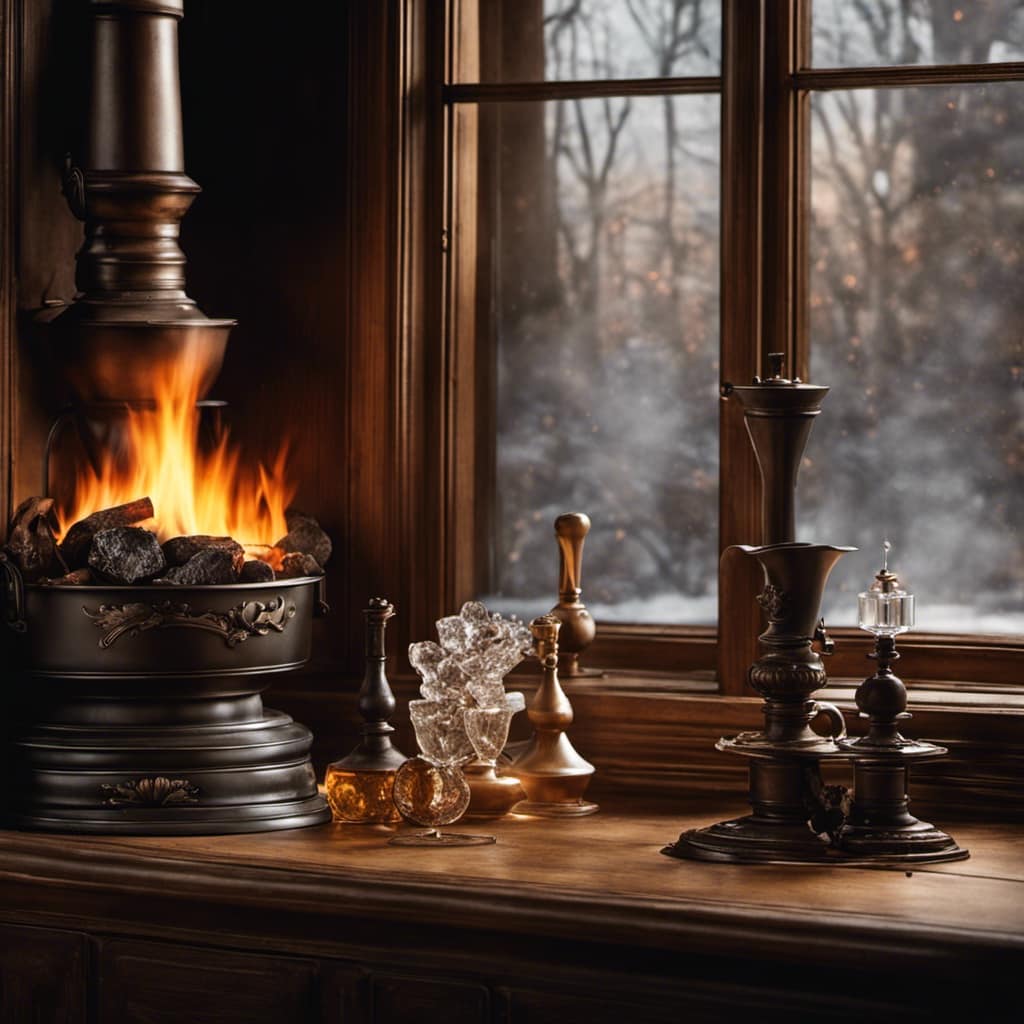
Frequently Asked Questions
How Much Does a Wood Stove Baffle Cost?
I’m not sure about the exact cost of a wood stove baffle, but using one can greatly improve the efficiency of your wood stove. It helps to redirect heat and maximize fuel consumption.
Can I Install a Wood Stove Baffle Myself?
Yes, I can install a wood stove baffle myself. It helps regulate airflow, increase heat efficiency, and reduce emissions. Installing it properly ensures optimal performance and safety.
Are Wood Stove Baffles Interchangeable Between Different Models of Wood Stoves?
Wood stove baffles are not typically interchangeable between different models. Proper baffle maintenance is crucial for efficient stove operation. A well-maintained baffle helps to control airflow, improve combustion, and reduce creosote buildup, ensuring a safer and more efficient wood burning experience.
How Often Should I Clean My Wood Stove Baffle?
How often should I clean my wood stove baffle? Regular cleaning is crucial to maintain optimal stove performance. Signs of a dirty baffle include decreased heat output and increased smoke. Clean it at least once a year for efficient operation.
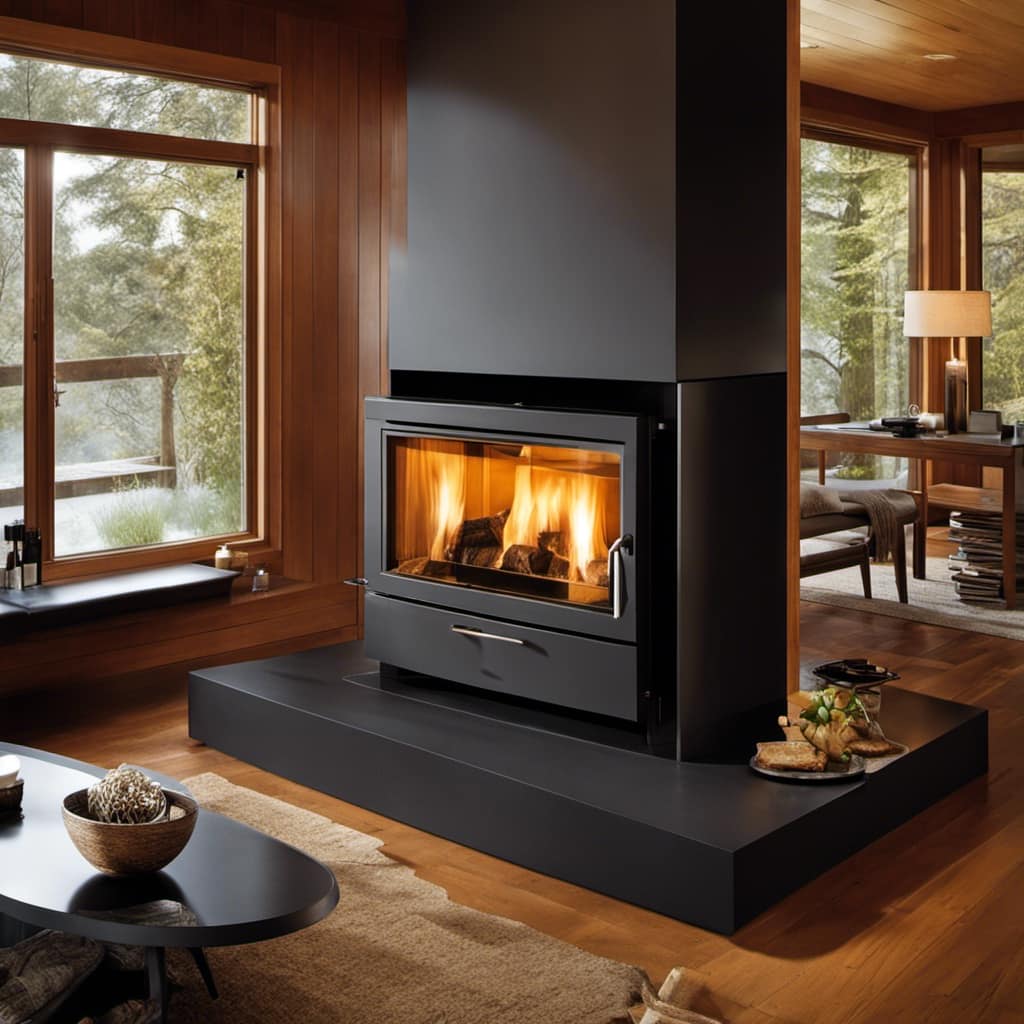
Can a Damaged Wood Stove Baffle Be Repaired, or Does It Always Need to Be Replaced?
A damaged wood stove baffle can sometimes be repaired, but it may need to be replaced depending on the extent of the damage. Signs of a damaged baffle include reduced efficiency and increased smoke production.
Conclusion
In conclusion, the baffle in a wood stove is like the secret ingredient that enhances the performance and efficiency of the stove.
Just like a well-placed obstacle directs the flow of water in a river, the baffle guides the airflow and heat distribution in the stove, resulting in a more effective and economical burn.
So, next time you cozy up to your wood stove, remember the important role that the baffle plays in keeping you warm and saving energy.
